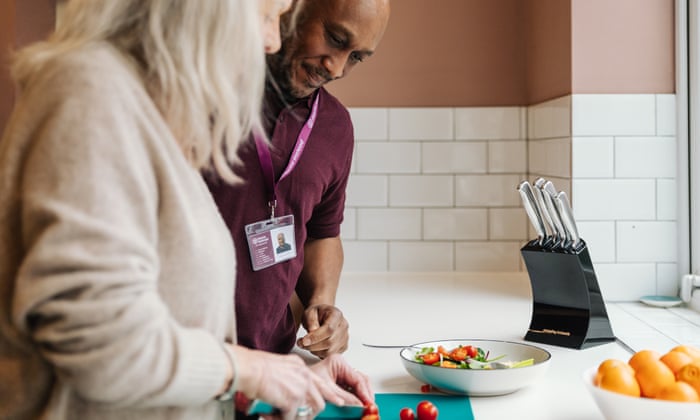There are no get-outs when it comes to getting old. No magic pills, no alternatives, no options to pick and choose from a menu of what the ageing process has in store. There is, however, help out there for those in need, even for those who need nothing more than a regular chat over a cup of tea.
The population of England and Wales is skewing older, according to the latest census figures. More than 11 million people, or 18.6% of Brits, were aged 65 years or older in 2021 compared with 16.4% in 2011, at the time of the previous census.
Not only that but a large proportion of elderly people live alone: more than 2 million people over the age of 75, according to Age UK. For many, that’s how they would like to remain: in their own homes, surrounded by their own possessions, independent from any institutional care and in their local communities.
A survey in 2019 of 2,000 people aged 65 years and over by Home Instead, one of the UK’s leading home care providers, revealed that 21% of respondents would find leaving their home as traumatic as a bereavement. One reason people want to stay put is because they fear their family would stop visiting them if they left their home, according to the poll.
The question, then, is how can those people continue to live alone when even the simplest tasks risk becoming more complicated, from scrambling some eggs for dinner to remembering to take all the medication that often goes hand in hand with living longer.
The answer lies in the same 2019 survey, which found that more than two thirds of those who responded would prefer to remain living at home with a visiting carer, rather than move in with their family or decamp to a care home. The term “carer” can refer to another family member or a friend who helps out. Or it could mean a trained care professional working for a provider of home care services. These, in the main, are registered care providers and if care involves aspects of personal care they should be regulated by an independent body, such as England’s Care Quality Commission (CQC).
Home care is a blanket term that covers all the assistance an elderly or ailing person may need to get through the day, from getting out of bed and making it to the bathroom, to getting dressed and making themselves something to eat. Even the most basic self-care activities that many of us take for granted can become challenging if circumstances change.
Then there are the bigger tasks, from shopping and housework, to attending medical appointments and managing finances. All these, and more, can be provided by a trained care professional who works for a company, such as Home Instead. As well as help with tasks, care at home may include helping someone through life events, such as a recovery from illness or hospitalisation, helping them cope after being diagnosed with a condition such as Parkinson’s or dementia; handling declining vision or hearing; or retaining some mobility despite becoming more frail.
Arranging for a paid professional to visit an older relative or friend often has a double benefit: as well as helping the person requiring assistance, paid professionals help to lessen the burden for any family members struggling to cope with the additional responsibilities that come with caring for their ageing parents or relatives along with caring for younger members of their family.

Multigenerational carers
The situation can be most acute for women who find themselves becoming a multigenerational carer (MGC). A Home Instead study investigating how carers sandwiched between looking after older and younger relatives coped found that women suffered more from stress, exhaustion and isolation than men in the same situation. The study, which was based on 2,000 responses, reported that the pressures of being a MGC are tough, with a third feeling as if they’re at breaking point and over half (58%) saying that they have low self-esteem (this increases to 63% for females).
The same report underlined the gender imbalance that dominates the role of carers in society. The vast majority (88%) of MGCs believe the onus falls on women to meet caring needs rather than men. It also found that more than half of respondents (59%) said they didn’t know enough about the social care market and what help was out there.
Yet finding the right home care services can mean accessing that much-needed help, whether it’s a short daily or weekly visit, round-the-clock care, or respite care. Home Instead has been rated regularly among the UK’s leading care providers based on customer recommendations and 73% of its regional offices are rated as “good” or “outstanding” by the CQC. For those starting out on their care journey, Home Instead can put them in touch with other families using its service to hear how their situation has been improved by opting for its high quality care.
To find out more about how you, or someone you care for, can continue to live their best life, visit homeinstead.co.uk/home-care-for-your-family
